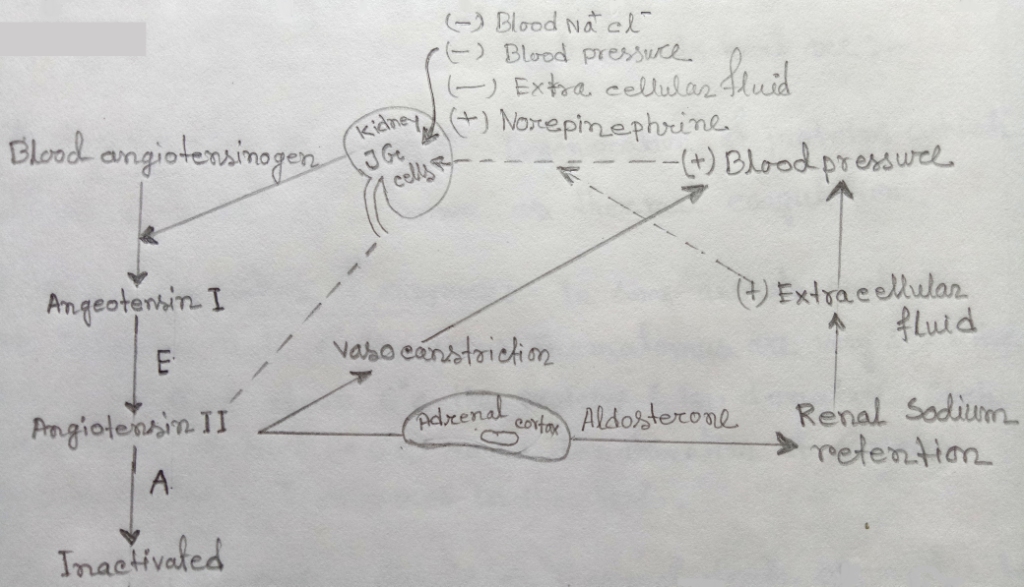Write short note on 'Regulation of kidney function'
Kidney function is regulated by renin angiotensin system. When the afferent arterial blood pressure is low, the stretch sensitive receptors of the arterioles initiate nerve impulses which induce the secretion of a proteolytic enzyme called renin by the Juxtaglomerular cells into the blood. This enzyme causes the release of a decapeptide called angiotensin-I from angiotensinogen. Angiotensin-I is converted into Angiotensin-II by a proteolytic enzyme called converting enzyme.

Fig: Renin-Angiotensin mechanism for the regulation of kidney function
Angiotensin-II increases the blood pressure by two mechanisms. First, it acts on the smooth muscle of the arterioles & causes strong vasoconstriction. Secondly, it stimulates the secretion of aldosterone by the adrenal cortex. Aldosterone enhances the uptake of Na^+ by the kidney tubules & hence causes a rise in the plasma Na^+ level. This result in an increased in the extracellular fluid volume & consequently an elevation in blood pressure. Angiotensin-II is degraded by Angiotensinase, present in plasma.